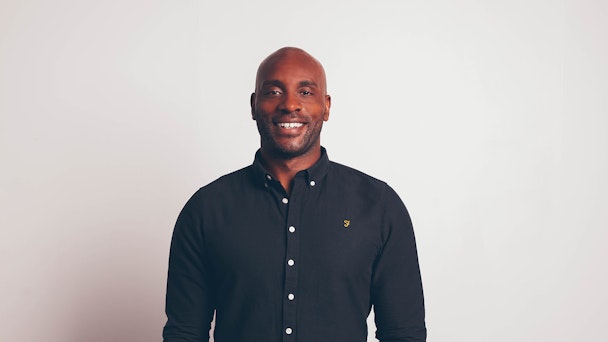BAME 20/20 Meet the changemakers: Ete Davies, managing director Analog Folk
In the marketing sector there has been little escaping the growing need to create a diverse workforce that reflects society. As part of this drive, BAME 20/20: Meet the Changemakers was created in order to shine a light on those from ethnic minority backgrounds succeeding in business. The latest subject of the interview series documenting its ambassadors is Ete Davies, MD Analog Folk

Analogue Folk MD, Ete Davies
How do you see the issue of diversity across the marketing sector in comparison to other sectors?
If I think of our sector as including the 'creative industries' [Advertising, Design, Technology, Fashion, Broadcasting, etc]. I think we're probably among the more cognizant around the issues and the most engaged in debate. But unfortunately, amongst the least with actual progress on D&I compared to other sectors. I also feel agencies are falling behind brands, in creating more diverse and inclusive workforces, which is worrying as we're supposed to help brands communicate to with wider society, this becomes difficult if you're not reflective of that society.
If you were starting again in your career what would you do differently?
I was relatively fortunate, in that I was able to work within diverse and inclusive teams at the agencies I worked at. Even if those agencies weren't exceptionally diverse. I also had good sponsors, who pushed me and helped open doors for me. That being said, the challenges of being a minority and facing the bias and prejudice that brings, has been an issue throughout my entire career - especially the more senior I became. If I were to do anything differently, it would be to seek out a mentor sooner, to gain their advice and guidance as they would have helped me navigate some of the early difficulties I experienced.
How do you see that issue being solved?
We need better representation and more inclusion at all leadership levels (from agencies to trade bodies). Also by agencies treating D&I as a long-term strategic initiative, be committed to it, have targets and objectives that ensure leadership is focussed on driving measurable change. For example, there's so much work on 'unconscious bias' training being done at the moment, which is important, but it's often it's just training to 'raise awareness around unconscious bias'. It's rarely viewed through a lens of "what actual change should this training create?", i.e. how do we improve our cultural, recruitment and development, processes and behaviours as a result of addressing bias, how and what are we measuring to know this training and the changes have been effective.
What advice would you give to those of a minority background getting into the industry? What’s the best way to go?
Seek out and identify mentors and sponsors, as soon as you can. Mentors are essential to your career for advice, guidance and acting as a 'sounding board' for your ideas and thoughts. Sponsors are more like your cheerleaders, they're the people with a platform or influence, who will use that to push opportunities for you and be your personal PR machines that help progress your career.
How do you see the role of organisational culture in improving inclusion and diversity?
Organisational culture is central to improving inclusion and diversity, it's 2019 and I'm still left shocked by some of the things I hear that happen in certain organisations. Changing to a more inclusive culture requires a wholesale long-term commitment from the entire business, which is lead and driven by leadership looking at all parts of the business, not just making it an HR/people focus, it's about ways of working, communication behaviours, salary structure and much more. Organisations are in essence simply communities of people, when people feel they can be a part of that community and be themselves, authentically, they are likely to be happier, more committed and productive.
If you could push agencies to do one thing, what would it be?
Make a commitment to creating diverse and inclusive leadership teams at the highest levels. There's a plethora of research that proves that diverse and inclusive leadership teams, make more effective decisions. That the organisations they lead perform better financially and are more innovative. But also, diverse and inclusive leadership will make sure that D&I is committed to as a long-term strategic priority, they will drive the change in organisational culture that helps create and sustain an inclusive (and high-performing) work environment.
This interview series featuring interviews with prominent BAME professionals from the MMC community will run throughout 2018. Previous entries can be found here.
Content created with:

AnalogFolk
Our mission is to use digital technology to make the analog world better and to also be an impactful agency of change for people, brands and society, in pursuit...
Find out more